Innovative collaborative machine tending saves time in manufacturing
The recommended tools for machine tending are RG2 and RG6 dual grippers. These industrial grippers attach easily to the end of a robotic arm ...

One of the biggest advantages of collaborating robots, so-called cobots, is that they provide enormous relief for employees.
The increasing automation of industrial production implies numerous advantages. First and foremost, workflows become more efficient and employees are relieved from strenuous tasks. Thus, automation adds value to the whole production process. The actual transformation, however, digs much deeper. With the steady rise of collaborative robotics, it will soon become commonplace for humans and robots to work hand in hand. Progressive developments in the field of sensitive automation are contributing to the fact that more and more activities can be profitably automated – for the benefit of all. As a result, working routines and job profiles are changing in the long run.
One of the biggest advantages of collaborating robots, so-called cobots, is that they provide enormous relief for employees. They do so primarily by taking on repetitive, monotonous tasks. As a result, employees are free to concentrate on more complex and often more interesting activities. To give an example: Instead of assembling standard components all day long, an employee can be involved in the development of prototypes. Here their technical knowledge is urgently needed and applied in an efficient way. Besides, the increasing automation of processes allows companies to deploy their employees in places, where they can develop their potential in a way more suitable to their actual needs. Thus, the professional development of the individual employee is supported.
At the same time, more demanding tasks increase job satisfaction among employees, which in turn has a positive effect on their motivation. On the one hand, this enhances their productivity and – even more important – ensures that employees enjoy coming to work and doing their job.
On the other hand, cobots also provide physical relief when they free workers from strenuous, wearing activities. This protects the employees‘ health, making their work noticeably more pleasant.
Thanks to their uncomplicated handling, cobots are easily operated. Even without programming skills, workers learn to deal with them quickly. Overall,increasing automation is transforming the demands placed on people: In the future, production work will rather be a matter of monitoring and analysing processes than of executing operative tasks. For example, an employee no longer has to laboriously check the functionality of connectors: A robot takes over, while the worker merely has to ensure its correct adjustment, giving him time for more fulfilling activities.
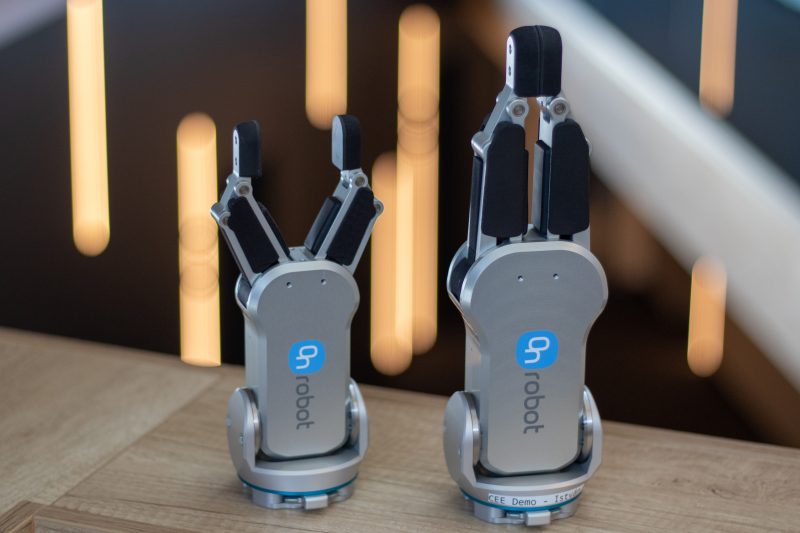
In terms of process efficiency, the use of collaborative robot applications immediately contributes to a noticeable increase in performance. This is mainly due to their short payback period: Collaborative applications are usually easy to install and quickly integrated into existing processes. OnRobot‘s RG2 and RG6 collaborative grippers for instance reduces deployment time by 30 percent compared to conventional gripping tools, as they are easy to program. In addition, robots do not need any breaks and can therefore basically work around the clock. They do not even need light, which saves additional energy. As long as only enough raw materials are available, they can do their jobs.
Finally, increasing automation is also changing the market for collaborative robotics itself: Robotics manufacturers now offer products that are compatible and complementary. In this way, they support each other in developing their potential and achieving the best possible result.
This is important because every robot is an overall installation.
Advances in sensitive automation are on their way – in this respect, OnRobot’s Gecko Gripper featuring a bio-inspired adhesive system or the RG2-FT gripper with its integrated force-torque-sensors might function as valuable examples. This shows, that the application scenarios for robotic solutions are constantly multiplying.
For companies, automation means greater safety and efficiency. By automating their processes, they become more flexible and can use their production capacities to the fullest. This makes them fit for international competition and increases their productivity.
For the individual employee this is associated with noticeable reliefs, because robots free him from monotonous, strenuous activities. This allows employees to apply their individual skills where they are actually needed – while at the same time realizing themselves to a certain extent.
The working world of tomorrow is therefore subjecting the increasing automation of work processes to fundamental change. However, there is no need to be afraid: We can actively shape the change that is about to happen. By recognizing the responsibly of dealing with this, the upcoming developments offer promising opportunities – not only for companies. Above all, the individual benefits from this, on several levels.
The recommended tools for machine tending are RG2 and RG6 dual grippers. These industrial grippers attach easily to the end of a robotic arm ...
When implemented correctly, robotic automation can spur greater efficiency, deliver better results, lower costs and increase flexibility—for both SMEs and larger-scale manufacturing companies.
The use of haptic sensors for industrial robots immediately offers several essential competitive advantages.
Adding intelligent end of arm tooling to a robot arm enables manufacturers to increase their efficiency and automate more than they thought possible. But, ...
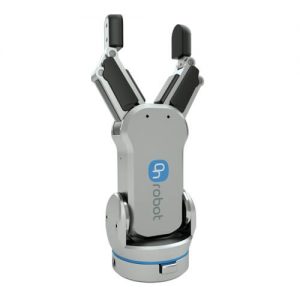
2kg payload flexible 2 finger robot gripper with wide stroke
3,530.00€
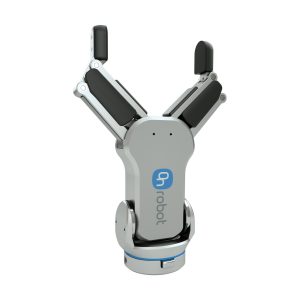
6kg payload flexible 2 finger robot gripper with wide stroke
4,230.00€
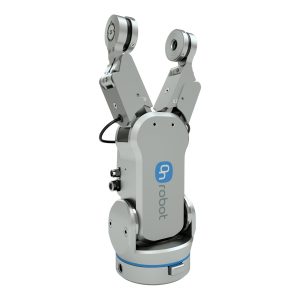
Smart robot gripper with in-built force/torque and proximity sensor
7,540.00€
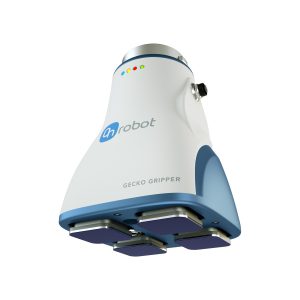
special adhesive technology with no-mark gripping inspired by nature
5,385.00€
within 7 work days
for all EU orders
discount for next purchase